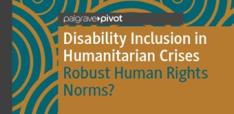The Politics of Feelings

A meditation on the ‘millennials’ and several of the discussions at Team Syntegrity 2017.
I saw the best minds of my generation destroyed by madness, starving hysterical naked,
dragging themselves through the negro streets at dawn looking for an angry fix,
angel headed hipsters burning for the ancient heavenly connection to the starry dynamo in the machinery of night,
Allen Ginsberg. Howl
Feelings have always played a role in politics. In many ways, politics is the art of persuasion and reasonable arguments can only mobilize people to a limited extent. In struggles, such as electoral disputes or a union organizing a strike, one will find a complex mixture of rational arguments and sentiment-infused discourses. No successful politician has ever managed to rise to the top solely on cold argument.
Nonetheless, there are reasons to believe that the importance of feelings in politics has reached a level seldom seen in modern history.
Put together a group of middle-class well-meaning young people from the northern hemisphere to discuss the recent events overcoming the world: xenophobia, Brexit, Trump, feminism, the future of the European Union, capitalism, etc., and the relevance of the politics of feelings will immediately arise. Some have called this emotional, well-meaning generation the “millennial” generation. There has been a lot of discussion about the impact of this concept, commonly found in marketing lingo. On the other hand, their influence has a mostly negative connotation for some, as being too “soft”, and even “lazy”. This article aspires to shed some light, beyond a judgmental view, on the millennial generation, on how politics can and has adapted to its cultural context, and the challenge it entails for us in struggling to defend a progressive political view.
There are reasons to believe the millennial generation has an important revolutionary potential. It is bizarre because one of the characteristics of this generation is its deep immersion in consumer culture. However, to understand the way it interacts with politics, one of the most important aspects to consider is its main driver. Much like the epic hippie movement of the 60´s, the hunger for profound, pure and radical connection with the “other” seems to be its main motivation.
What another generation sought in rock, hallucinogens, and new esotericism, this generation craves and explores through the internet and pop culture. It is ironic that when society seems to have achieved a level of connection like never before, the hunger for connection has only grown.
The politics of goodness
“An enemy is someone who´s story we still have not heard” is the aphorism, made famous and criticized by Slavoj Zizek, which sums up a certain value underpinning millennial multiculturalism. For the last few decades, the issue of identity has defined the debate in cultural politics. One could talk of two ways of understanding the public sphere in the cultural politics of a liberal democracy: on the one hand, a traditional view which emphasizes equality, and, on the other hand, a view which emphasizes diversity.
The first one, related to processes which gave birth to the modern nation state, intends to consolidate and protect public space as one where citizens can integrate into the community as equals. The relation of each citizen with the state is individual. Every individual is king in his private space and an obedient follower of the nation state in the public arena. The second one, multiculturalism, adds complexity to this relationship by recognizing a series of intermediate groupings, between the citizen and the state, which may adhere to their own set of rules and conventions. A classic example of the tension between these is the debate about the use of the burkha and other religious symbols in public schools. While a liberal non-multicultural view would tend to defend the equality with which every citizen integrates into the nation state and, therefore, would forbid the expression of religion in public schools, a multicultural view would defend the expression of religious diversity in schools, to make articulate the different groups (religions) that form the national community.
Multiculturalism itself tries to juggle this tense balance between an ideal of universal comprehension of the other and a radical differentiation from that same other. Zizek cites the case of Haiti as an example. As the young nation acquired its independence it was infused with both a strong black identity, as recently emancipated slaves gained their freedom and were ready to govern for the first time, as well as the influx of the French Revolution liberal and universalist views. The result materialized in the 1804 constitution which firstly defined Haiti as a black republic and, subsequently, defined all inhabitants of Haiti as black, no matter what the colour of their skin was.
It is relevant to mention that the multicultural view, over recent decades, especially since the 80´s, is linked to one cultural struggle in particular: the rebellion against the hegemony of white, straight, first world, man. This is in the context of important achievements by anticolonial and anti-discrimination social movements. This struggle has been fought around issues of symbolic violence executed upon non-hegemonic groups (women, non-white, not straight, etc.). However, some have argued that behind the “politically correct” effort of multiculturalism a dose of racism and first world views imposition may lie. Possible evidence of this is the emergence of a xenophobic, anti-Muslimism right, portraying themselves as defenders of gender diversity (such as Pim Fortuyn in the Netherlands). In any case, as Edward Said so brilliantly showed in the case of western representation of the east, no matter how good the intention might be, the representations of the other tend to show more of one's intimate drives than the actual people being represented. In this difficulty to “comprehend” the other lies the main difficulty of millennial multiculturalism. Political correctness might be enough when what is sought for is simple tolerance or peaceful existence, but it seems to completely miss the point when what is looked for is a deep connection to that other.
A good example of this difficulty can be shown in pop culture through the Netflix series Sense 8. In this science-fiction story, the “superpower” protagonists have a supernatural empathy within their group of eight people. Eight individuals, distributed all over the world (Mexico, USA, England, South Korea, Kenya, India, and Germany), represent human diversity, with special emphasis on LGBT diversity. As these people discover, they belong to a species different from homo sapiens, the homo sensorium. They start to explore the implication of knowing and feeling everything the other one does. In this millennial multiculturalist utopia, a Mexican homosexual actor, a German jewellery thief, and an African bus driver´s differences are mere superficial marks all of which enrich a sublime interior encounter.
So one of the main questions underlining the plot is how did homo sapiens overcome the empathetic apes, and gain control of the world? The unsettling innuendo is that the answer lies in individualism, egotism and the invisible hand – that is to say, capitalism. The reason this is unsettling is that liberal multiculturalism, brought to its logical extreme, seems to challenge the capitalist basis on which it originally formed and tend towards a form of radical communitarianism. Paradoxically, the millenial consumerist notion of instantaneous profound connection with each other, can eventually subvert the faith in capitalism´s capability to bring forth truly emancipatory identities. In that sense, it seems there is a revolutionary potential in millennial multiculturalism. For those trying to build a political platform, from the left and in the first world, this potential may be crucial.
Brexit
There are many reasons why Brexit won, but undoubtedly a lot of it had to do with the incapability of traditional politics to engage with the youth. Young people, even though overwhelmingly against Brexit, simply did not go to vote that day. Traditional politics lacked that new grammar necessary to translate this hunger for deep connection with its revolutionary potential.
This draws a sharp contrast with what Jeremy Corbyn achieved in the last general elections where youngsters voted in the masses. Again, there are many reason for this, but perhaps Corbyn´s speech at Glastonbury may give us a hint of this capability to engage with millennial youth and its revolutionary potential.
As Jeremy Corbyn took his place in front of the thousands of young people who assisted the festival (a festival originated back in the 60´s), among major pop icons like Radio Head or Ed Sheeran, the Labour leader touched base on at least three major issues in a ground-breaking speech.
Firstly, politics are something close to everyone, or as he put it “Politics is actually about everyday life. It’s about all of us, what we dream, what we want, and what we want for everybody else”. In other words, a clear reference to the politics of feeling, grounded in our day to day life, and the relationship between individuals.
Secondly, he made a clear call for multicultural inclusion, by appealing to the common universal link between all human cultures: “When people across the world think the same, cooperate the same, maybe in different languages, in different faiths, in different cultures, peace is possible, and must be achieved”.
And, finally, the truly millennial touch, the possibility of sublime connection with the other:
"It's that sense of unlocking the potential in all of us that I find so inspiring, and I'm inspired by many poets and many people, and I think we should adopt a maxim in life, that everyone we meet is unique, everyone we meet knows something we don't know, is slightly different to us in some ways.
Don't see them as a threat, don't see them as an enemy, see them as a source of knowledge, a source of friendship, and a source of inspiration.”
However, there is a limit to how much the politics of goodness on their own can fuel a political project. It may be really hard for the progressive liberal to comprehend, but it is perfectly possible for a national inhabitant to feel absolutely empathetic with immigrants, and yet support Brexit if he believes it will somehow improve his living conditions or those of his family or immediate community.
In that sense, perhaps there is something to learn from Haiti's experience, in their notion of inclusive patriotism. Examples of this discourse are to be found in the national popular thesis of Iñigo Errejon in Podemos, and certainly in the proud French discourse both of Mélenchon and Macron. In these cases, nation state identity is linked to a community that embraces differences. The Podemos notion recognizes the internal national diversity of Spain while at the same time reinvigorating the patriotic feeling which is perhaps paramount. This discourse has another advantage, it opens the communication between the millennial views and the more traditional sense of national communities. The future of progressive politics, despite many progressives, seems to be patriotic, and struggling with the far-right xenophobic nationalists for what the “nation state” means. As Pablo Iglesias once put it: “the nation is, above all, our public hospitals, and public schools”.
The politics of anger
The politics of anger move. They tend to mobilize an important portion of the population in very intense and short-lived movements. It is not a force that can steadily push a project, but it is vital to understand key moments of change in scenario. Basically, this type of politics can be summarized by the notion of perceived injustice caused by someone. Someone, somewhere is having a party to which we are not invited.
There is nothing inherently leftist in this feeling. In fact, these last few years have seen the rise of proto-fascist movements feeding on it.
One could, therefore, make the distinction between two types of politics of anger: one directed upwards, towards the elite, and one downwards, towards the immigrant population. It is a dangerous explosion of energy that can shoot any which way, and has become increasingly relevant in a set of decisive events that have occurred in recent decades.
As the world came to be ruled by politicians defending the Third Way, some started to dream of an ‘end to history’, where political discussions could be reduced to minor administration of private interests, without any sort of radical change horizon. Under the idea of achieving a limitless consensus, traditional left and centre left parties implemented a pro market agenda even more brutally than the right parties. These parties sought to overcome class struggles, substituting left and right economics with wrong and right public policies, and ended up enabling a huge financial market that hypertrophied until, in 2008, it imploded.
For the first time in centuries, a generation was going to be poorer than the generation that preceded it, with an important decline in middle income. Those traditional blue-collar voters of the leftist parties started to turn their back on the parties that had abandoned them. And they are angry.
The debacle of the Third Way parties, abandoned by their historical voters, has left these parties incapable of containing the emergence of a neo-fascist populism. Right-wing populism stands for the real malaise of blue collar workers and points its finger at migrants, even poorer than those workers themselves, as responsible for their sufferings. Where the second to last in line is forced to struggle with the last in line, xenophobic fascism soon emerges. The true parents of the emergence of this popular neofascism are the leaders of the Third Way, who with their indifference and opportunism did not hesitate to sacrifice the middle classes and the social tissue, suffocating any glimpse of social organization and solidarity in attempts to resist their neoliberal reforms of the 80´s and 90´s.
A clear example, few are more responsible for Donald Trump´s victory than the Democrat establishment blocking Sanders´ alternative. This was another example of the Third Way paladins, seduced by the promises of TTP or TTIP, who were then surprised by its crashing fall when faced with the worker class reaction. Those who disguise themselves in a discourse of responsibility, while demolishing the democratic foundations of countries with their centre-wing fundamentalism, are the ones responsible for delivering governments to neofascism.
What then can the left do in such a scenario? How can we give an answer to the mayhem of the radical free market without falling into xenophobic frenzy? How to answer the suffocating nationalism of Trump or Brexit?
Part of the answer must be the notion of inclusive patriotism already discussed in the politics of goodness. However, this approach has a very limited effect. Right wing nationalism feeds off an essentialist view of the nation. The nation under this discourse does not require individuals with agency, socially constituted alongside their networks and local communities. It is an identity plea which is nurtured by the very lack of grassroots organization. What allows it to set the poor local worker up against the poorer immigrant worker, is its refusal to recognize the category of worker class uniting both.
Faced with the growing consolidation of xenophobic nationalism, the alternative of the left is to deepen democracy by recognizing and strengthening social movements and citizenship in general, in the struggle against those few who have benefited from their impoverishment.
There are real reasons to be angry, but not towards the fellow worker. Both Trump and Sanders had the same diagnosis: a small elite, whose interests were defended by Third Way leaders behind both party lines, have enjoyed an increase in their gains never seen before, while the middle classes suffered. The difference was the answer they gave to this diagnosis. While Trump pointed his finger at immigrants, Sanders called for fairer distribution of the wealth hoarded by the élite.
The lesson for the left, in terms of the politics of goodness, is the notion of inclusive patriotism. In terms of the politics of anger, the lesson for the left is the deepening of democracy, the importance of democratic tissue, through the empowerment of social movements.
And once again, something similar can be said of Corbyn´s campaign. He himself, in that same Glastonbury speech put it like this:
“But what was even more inspiring was the number of young people who got involved for the first time. Because they were fed up with being denigrated, fed up with being told they don’t matter. Fed up with being told they never participate, and utterly fed up with being told that their generation was going to pay more to get less in education, in health, in housing, in pensions and everything else.”
“…. Is it right that so many people live in such poverty in a society surrounded by such riches? No, it obviously is not. And is it right that European nationals living in this country, making their contribution to our society, working in our hospitals, schools and universities don’t know if they’re going to be allowed to remain here? I say, they all must stay and they all must be part of our world and part of our community, because what festivals are about, what this festival is about, is coming together”.
Nonetheless, the politics of anger remains a danger. On the one hand it is inherently fleeting, but more importantly, it is a loaded gun that can shoot in many directions. As Walter Benjamin said, in every emergence of fascism there is a failed revolution. It is of the utmost importance that we are capable to construct a movement beyond anger, to ensure that its fruits are not more anger, but a more solid democracy.
The politics of reason
The politics of goodness and anger may seem opposites, but, in reality, they are deeply related. They are both politics of exceptionality, politics of the moment of outburst. They have little to say about the more boring aspects of politics-as-usual. The true opposite to both the politics of goodness and anger are the politics of reason. And in these times when good old-fashioned political reasoning is discredited, here is the case for its defence.
The left lives in times of few certainties and many questions. Perhaps recognizing this should be one of the main issues at hand. The lack of answers in the left is especially clear in the question of “the day after”. As Zizek has put it, the left has overcome some of the tendency to marginality which marked the 90´s, but is still faced with few answers about how to approach the day after winning the elections. One example of this is the case of Syriza, where inclusive nationalism, attempting to defend popular sovereignty against the extreme austerity measures imposed by the EU, and supported by a strong democratic basis, shown by the referendum, was simply not enough.
Faced with this void, is the only option for the left to defend liberal advances and resign from its historical structural struggles? On the one hand, as the contradiction between the egalitarian promise of democracy and market instrumental logic becomes increasingly evident, it seems undeniable that the left of our times must recognize and defend the basis of liberal democracy. But, on the other hand, there can be no relinquishing of the horizon of a radically different social order, if we are not to succumb to Third Way hypocritical pragmatism.
In any case, as Chantal Mouffe has stated, our socialism is becoming increasingly similar to that (unfulfilled) promise of radical equality which underlines democracy, while the defenders of the free market are becoming increasingly blunt in their disregard for popular sovereignty and democratic standards.
To be yet more explicit, I believe there is a case to be made not only for democracy, but specifically for the democratic republic, to recover the republic for the left, as the institutionalization of popular will. Certainly, the democratic republic and the law are fundamental for the poor. The struggles of workers, all along our history, as of all social struggles, are inscribed in the ink of law. As Iglesias once stated, they are written in the blood of those who fought for the recognition of those rights.
Law in the service of majorities is one of the main weapons in the fight for a more democratic society. The powerful need no rule of law: the only rule they need is superior strength. There is still so much to defend from the Enlightenment and modern values. There is something essential to be learned from the Spanish revolution in the potential of republican ideals against the emergence of fascism. Faced with the populist right nostalgia for the past, and the Third Way obsession with renovation, our proposal should be for the future. We should, in the most complex sense of the word, be for development. Namely, faced by the market nation, we must defend the citizenship nation. Not the one with the idealizing and sanctifying capital “N”, but rather we should defend a modest and concrete nation that is born out of grass roots organization and empowerment of civil society. Our nation is our schools and hospitals. It is, to sum up, that nation of the welfare state and the entrepreneurial state, beyond the exacerbation of tribal identity.
Ye are many – they are few
A lot has been written about why different projects of the left have failed. The notion of recuperating the modern values of the republic may help, but it is still a vague notion.
Yes. There is something to be said for the left learning from its many failures. But perhaps the time has come to start thinking about possible victory and what this would look like. Corbyn´s speech ends with the following quote from Percy Bysshe Shelley’s ‘The Masque of Anarachy’: “Shake your chains to earth like dew, which in sleep had fallen on you: ye are many – they are few!” Only by hope turning plausible will the “many” eventually overcome the “few”. For the time being, as we awkwardly try to find a way, let us know when to lead and when to listen, when to feel, and when to reason.Is the new left a space for radicalism or transversality? Is it a vindication of the tradition of the left, or the emergence of new unprecedented forces and social groups?
As Errejon expressed, either of those categories of the adversaries are traps. The only answer that can impregnate the playfield and give us any chance of victory is “neither and both”. Opposite to what the populist right and the Third Way pretend, there is no contradiction between deep and open democracy and republican popular sovereignty. Those who have consolidated a low intensity democracy with a huge concentration of power, are responsible for endangering the republican rule of law. An inclusive nationalism, a deep and radical democracy, and a republic which embodies popular sovereignty are some key ideas in that struggle.
The time has come to rethink and reshape our comfortable trenches. In times dominated by the politics of feelings, we who believe in a different, more just, way of organizing society must walk a thin line, recognizing the importance of feelings, avoiding any temptation to intellectual disdain towards the millennial generation, while still defending the values of the republic.
Up to a point, it is a game of numbers. In order for the left to outnumber its adversaries, broad alliances are needed. That is why an astute combination of the politics of goodness and of anger, of discourse appealing to new millennials and to traditional blue collar voters is necessary. This alliance seems to be one of the challenges of our time. The other one is what to do the day after. And that is a major challenge.
Noam Titelman is a social activist. In 2012 he became president of the Student Federation at Santiago’s Catholic University, one of the oldest and largest universities in Chile. This piece first appeared on:
Photo credit: Millennials Elizabeth Hahn CC BY 2.0



